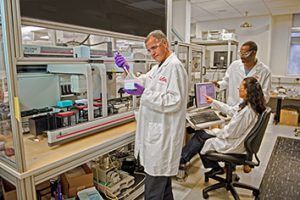Alzheimer’s drug that modestly slows disease OK’d by FDA
It’s the first drug that’s been convincingly shown to slow the decline in memory and thinking that define the disease. But the medication comes with downsides, including potentially serious side effects and the need for frequent drug infusions.




